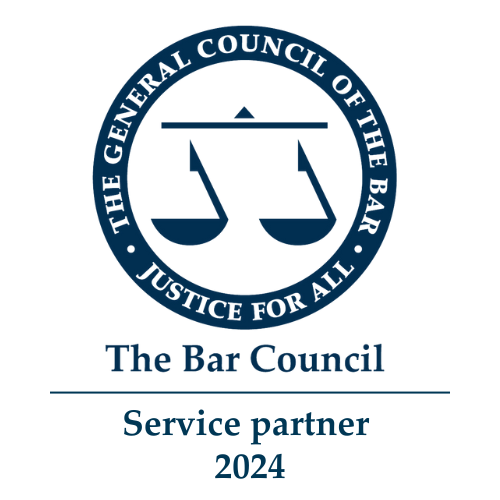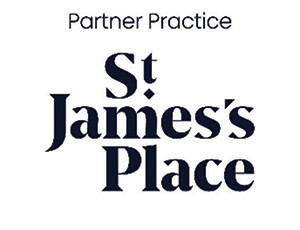*/

Louise Crush explores the key points and opportunities for tax efficiency
As we move into the 2024-25 Tax Year, understanding the intricacies of the Budget alongside the tax landscape is crucial. Both can have significant implications on your personal finances.
Whilst the above changes signify an ever-changing tax landscape, they are arguably of limited benefit to higher earners at the Bar and have negligible impact on a pound and pence basis. I would suggest it is more important to focus on the unchanged provisions:
Despite much pre-budget speculation, the IHT regime remains untouched. A couple leaving their estate (inclusive of residential property) to direct descendants still have £1m allowances combined before IHT becomes payable. If left to non-direct descendants or no residential property forms part of the estate, this decreases to £650,000 combined.
IHT is often described as a ‘voluntary tax’ paid by those whose favourite beneficiary is HMRC. Have you recently reviewed your liability and are you taking steps to mitigate it as far as possible? Savings that could be made for your estate could be far greater than savings made from the Budget.
As we move into the 24-25 Tax Year, the Annual Allowance remains at £60,000 (subject to tapering or to the Money Purchase Annual Allowance). You may also have unused allowance from the previous three tax years that can be carried forward.
So why should we focus on pensions rather than the changes in the Budget? Currently, pensions remain outside your estate for IHT. They also provide huge income tax savings, through tax relief on the contribution you make (as a sole trader) and additional tax relief potentially claimable via your tax return, depending on tax bracket. Where opportunities are available to capitalise on tax allowances and benefits, it is essential to utilise them.
Seeking financial advice is more important than ever. For a summary of the main changes and tax allowances, or to arrange a no obligation initial chat, please visit www.westgatewealth.co.uk/specialist-advice/the-bar; email: enquiries-westgate@sjpp.co.uk; or call us on tel: 01962 353153.
* National Statistics HMRC Tax Receipts and National Insurance Contributions for the UK (Monthly Bulletin), February 2024.
Westgate Wealth Management Ltd is an Appointed Representative of and represents only St. James’s Place Wealth Management plc (which is authorised and regulated by the Financial Conduct Authority) for the purpose of advising solely on the group’s wealth management products and services, more details of which are set out on the group’s website www.sjp.co.uk/products. The St. James’s Place Partnership and the titles ‘Partner’ and ‘Partner Practice’ are marketing terms used to describe St. James’s Place representatives.
The value of an investment with St. James’s Place will be directly linked to the performance of the funds selected and may fall as well as rise. You may get back less than the amount invested.


SJP Approved 21/03/2024

As we move into the 2024-25 Tax Year, understanding the intricacies of the Budget alongside the tax landscape is crucial. Both can have significant implications on your personal finances.
Whilst the above changes signify an ever-changing tax landscape, they are arguably of limited benefit to higher earners at the Bar and have negligible impact on a pound and pence basis. I would suggest it is more important to focus on the unchanged provisions:
Despite much pre-budget speculation, the IHT regime remains untouched. A couple leaving their estate (inclusive of residential property) to direct descendants still have £1m allowances combined before IHT becomes payable. If left to non-direct descendants or no residential property forms part of the estate, this decreases to £650,000 combined.
IHT is often described as a ‘voluntary tax’ paid by those whose favourite beneficiary is HMRC. Have you recently reviewed your liability and are you taking steps to mitigate it as far as possible? Savings that could be made for your estate could be far greater than savings made from the Budget.
As we move into the 24-25 Tax Year, the Annual Allowance remains at £60,000 (subject to tapering or to the Money Purchase Annual Allowance). You may also have unused allowance from the previous three tax years that can be carried forward.
So why should we focus on pensions rather than the changes in the Budget? Currently, pensions remain outside your estate for IHT. They also provide huge income tax savings, through tax relief on the contribution you make (as a sole trader) and additional tax relief potentially claimable via your tax return, depending on tax bracket. Where opportunities are available to capitalise on tax allowances and benefits, it is essential to utilise them.
Seeking financial advice is more important than ever. For a summary of the main changes and tax allowances, or to arrange a no obligation initial chat, please visit www.westgatewealth.co.uk/specialist-advice/the-bar; email: enquiries-westgate@sjpp.co.uk; or call us on tel: 01962 353153.
* National Statistics HMRC Tax Receipts and National Insurance Contributions for the UK (Monthly Bulletin), February 2024.
Westgate Wealth Management Ltd is an Appointed Representative of and represents only St. James’s Place Wealth Management plc (which is authorised and regulated by the Financial Conduct Authority) for the purpose of advising solely on the group’s wealth management products and services, more details of which are set out on the group’s website www.sjp.co.uk/products. The St. James’s Place Partnership and the titles ‘Partner’ and ‘Partner Practice’ are marketing terms used to describe St. James’s Place representatives.
The value of an investment with St. James’s Place will be directly linked to the performance of the funds selected and may fall as well as rise. You may get back less than the amount invested.


SJP Approved 21/03/2024
Louise Crush explores the key points and opportunities for tax efficiency


Now is the time to tackle inappropriate behaviour at the Bar as well as extend our reach and collaboration with organisations and individuals at home and abroad
A comparison – Dan Monaghan, Head of DWF Chambers, invites two viewpoints
And if not, why not? asks Louise Crush of Westgate Wealth Management
Marie Law, Head of Toxicology at AlphaBiolabs, discusses the many benefits of oral fluid drug testing for child welfare and protection matters
To mark International Women’s Day, Louise Crush of Westgate Wealth Management looks at how financial planning can help bridge the gap
Casey Randall of AlphaBiolabs answers some of the most common questions regarding relationship DNA testing for court
Marking Neurodiversity Week 2025, an anonymous barrister shares the revelations and emotions from a mid-career diagnosis with a view to encouraging others to find out more
David Wurtzel analyses the outcome of the 2024 silk competition and how it compares with previous years, revealing some striking trends and home truths for the profession
Save for some high-flyers and those who can become commercial arbitrators, it is generally a question of all or nothing but that does not mean moving from hero to zero, says Andrew Hillier
Patrick Green KC talks about the landmark Post Office Group litigation and his driving principles for life and practice. Interview by Anthony Inglese CB
Desiree Artesi meets Malcolm Bishop KC, the Lord Chief Justice of Tonga, who talks about his new role in the South Pacific and reflects on his career